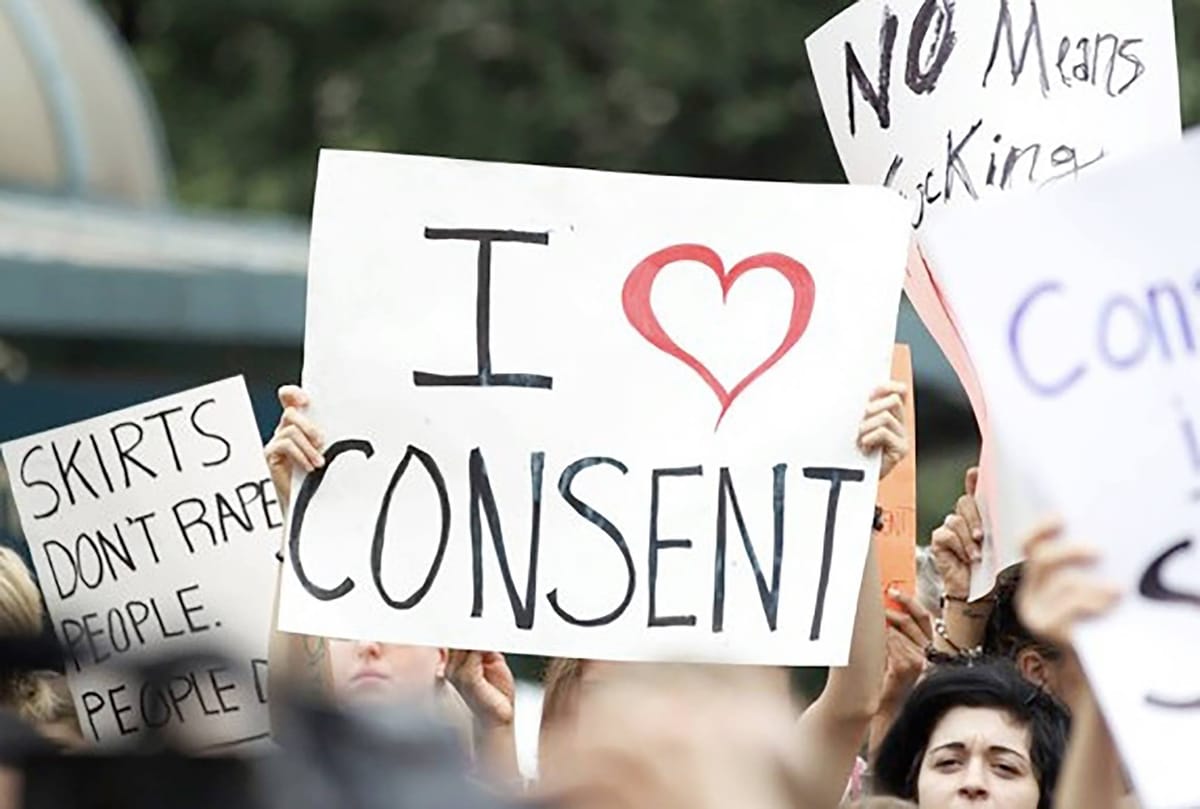Spotlight: Consent Workshops

By Youssra Elmagboul, BA Economics and Development
When designing these workshops it was imperative that they were focused on sport, and the culture surrounding it, as many students have already taken part in a workshop during their respective freshers’ weeks. While the opening section of the workshops is largely still the same (covering the basics of what the law defines as consent and what we, as a society, think of consent) they quickly move on. The bulk of the workshop focuses on what exactly sport culture is– something giving you a sense of belonging when you first start university, a family and so much more. However, darker aspects can also fester, such as so called ‘lad culture’ and ‘locker room talk’, all of which are not confined to any gender. Add to this the constant presence of alcohol, whether it be celebrating a win or going out on sports night, and we have a dangerous mix where lines can become ‘blurred’. There is a reason why so many sexual harassment and assault cases have alcohol involved, with an altered state of mind and inhibitions fading, cases quickly become a game of ‘I said, they said’. These workshops aim to prevent such instances and to provide everyone with the same arsenal of information – the tools they need in order to communicate appropriately when they are next put in a situation where there is a need to exercise consent and to remember to check if the other person is comfortable. No one is saying that you have to stop and ask, “Are you consenting to this?” (though there would be nothing wrong with that). A simple “Is this okay?”, “Are you enjoying this?” can go a long way. It lets the other person know that you care about their well-being and want them to enjoy whatever is about to happen. The workshops also aim to empower people, to remind them that they can retract their consent at any point and that, just because they have consented to one sexual act, it does not mean they have to consent to another. Consenting once, twice, one hundred times before, does not mean they have to consent now.
It is safe to say that many sport members felt apprehensive about attending these workshops; even after we assured them that we had altered the workshops given during freshers’ week. In fact, one of the first remarks from an attendee was, “I know a lot of us don’t want to be here.” Luckily, this was followed by, “but I think we can all appreciate how important these workshops are in the current climate.” This student was referring to the #MeToo movement, through which the topic of consent has been brought into households across the world.
It is becoming clearer that consent is not as black and white as we like to think. For example, an issue that was explored in depth in one workshop was the allegation against Aziz Ansari; the group talked about this story for a good half an hour – was it sexual assault? Yes, of course, if that’s how the victim survivor felt; but many members of the group could also see Ansari’s side of the narrative. How are we meant to navigate the minefield of sexual consent? It seems that the answer is quite simple: to talk about it. Talk to the person in front of you, the person whose consent you are seeking. Talk to your teammates about what they are saying and what it could imply. Talk to those around you to ensure that not only they are comfortable with the position they are in, but that you are too. The more we talk about consent the more it will become a part of a Sports Culture that we will be proud to be a part of.




